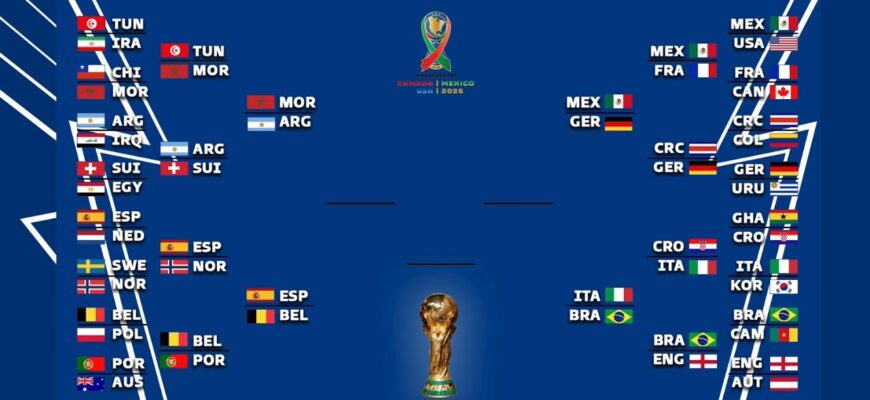
UDINE, Italy — The Italian national football team, affectionately known as the Azzurri, have once again found themselves walking the tightrope of FIFA World Cup qualification. A definitive 3-0 victory over Israel in Udine has secured their passage to the playoffs, a familiar and often nerve-wracking stage for a nation with a storied footballing history. While the win was clear-cut on the score sheet, the underlying narrative was anything but simple, marked by stellar individual performances, a revitalized coaching presence, and a touch of off-pitch turbulence.
Retegui`s Resurgence and Defensive Resilience
The star of the evening was undoubtedly Mateo Retegui. The forward, a player whose inclusion in the national squad has often sparked debate, silenced critics with a masterful performance, netting both a clinical penalty and a breathtaking strike from outside the box. His second goal, a curling shot into the top corner after a tenacious ball recovery, was a moment of sheer brilliance, emblematic of the quality he brings to the Italian attack.
Adding to the scoreline, Gianluca Mancini contributed a goal, putting the final flourish on a match that, despite the comfortable margin, was not without its challenges. Israel, rather than folding under pressure, demonstrated flashes of offensive prowess, forcing Italy’s defense to remain vigilant.
Crucially, goalkeeper Gianluigi Donnarumma delivered a performance befitting his reputation. Following a recent error in a previous qualifier, the captain demonstrated his immense talent with two truly miraculous saves. These interventions were not mere formalities; they were game-changing moments that preserved Italy`s clean sheet and underscored his value, perhaps serving as a quiet reminder to those who might occasionally forget the caliber of player between the posts.
Gattuso`s Midas Touch: A New Era?
Under the stewardship of new coach Gennaro Gattuso, Italy has embarked on a remarkable run. This victory marks his fourth consecutive win, with the team finding the net an impressive sixteen times during this short tenure. Gattuso`s tactical adjustments for the Israel match, shifting from a 4-2-4 to a 3-5-2 formation, proved effective. Players like Mancini, Locatelli, and Cambiaso integrated seamlessly, showcasing the squad`s depth and adaptability.
However, the journey was far from a straightforward “monologue” as some might have hoped after Italy`s dominant performance against Estonia. Israel, with their fluid 4-3-1-2 setup and the creative freedom of Gloukh, carved out significant opportunities, particularly in the first half. This forced Italy to dig deep, highlighting that even under a new, energized coach, the path to international glory is rarely paved with ease.
The Unseen Spectacle: Protests and Empty Seats
The atmosphere surrounding the match was uniquely somber. Prior to kick-off, the city of Udine witnessed clashes between protestors and law enforcement, creating a palpable tension that, while geographically distant from the stadium, undoubtedly cast a shadow over the event. Inside the Friuli Stadium, a mere ten thousand spectators gathered, a surprisingly low turnout for an Italian national team fixture, especially one with World Cup implications. One might ponder if the ongoing qualification drama or external circumstances contributed to this muted presence, leaving one to wonder if the passionate Italian support is becoming weary of the perennial playoff narrative.
Looking Ahead: The Playoff Gauntlet
With their playoff spot secured, Italy`s attention now firmly turns to the challenges of March 2026. While a direct qualification remains a mathematical possibility, requiring an improbable “gift” from Norway (namely, a draw or loss against Estonia) and a gargantuan improvement in goal difference against Moldova and Norway, the pragmatic view is that the Azzurri will once again have to navigate the high-stakes, single-elimination playoff format. This scenario is a familiar one for Italian football fans, often bringing with it a unique blend of anxiety and cautious optimism.
The upcoming matches against Moldova and Norway, though seemingly less pressured, will serve as crucial opportunities for Gattuso to fine-tune his squad and solidify his tactical vision. The debut of promising youngsters like Cambiaghi and Piccoli, along with the consistent threat posed by Retegui and the leadership of Donnarumma, provides a foundation upon which Italy hopes to build a successful campaign. The road to the 2026 FIFA World Cup is winding, but for the Azzurri, at least for now, it continues.
This article is a fictional news report based on the provided Italian article, adapted and expanded for an English-speaking audience.









